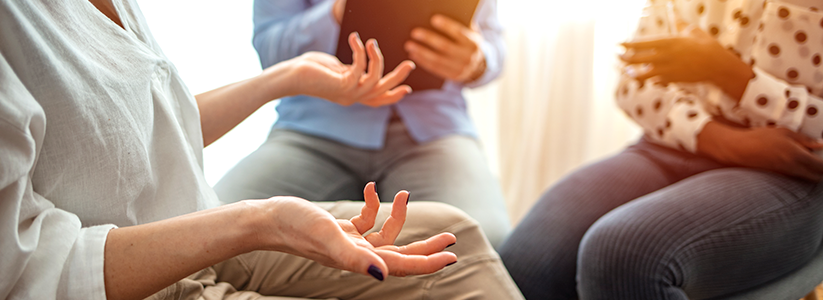Supporting Student Wellness
The JMU Counseling Center offers high quality mental health and crisis support to students who are struggling. Additionally, the Center serves as a vital referral source for students needing to connect with additional campus services and/or more intensive support within the community. The Counseling Center also provides preventative outreach across campus, focusing on maximizing the overall health and wellness potential of our campus community.
Your gift ensures students have continued access to critical mental health resources that support their ability to engage on campus and work to become educated and enlightened citizens. That’s powerful.
The Opportunity
The most direct way to help meet the mental health needs of our community is through making a donation today. The Counseling Center assists over 2,000 students annually through providing a variety of services, including:
- short-term (3 to 5 sessions) individual counseling to address personal problems negatively impacting quality of life, as well as referrals to professionals in the local area who accept clients for longer-term clinical services
- clinical support, advocacy, consultation and referral services for survivors of sexual trauma
- crisis consultation, in person or over the phone, to students, faculty, staff, and others who are concerned about the distressed, unusual, problematic, or potentially harmful behavior of others.
- weekly small-group counseling to deal with eating concerns, grief, and more
- specialized 3-part workshops for issues like anxiety, body empowerment, & coping
- wilderness therapy programs during spring and fall break
- animal assisted therapy and therapy dog outreach
- engaging mental health workshops on a variety of topics
The Impact
Financial gifts to the JMU Counseling Center provide more clinical services to students. The demand for vital counseling services is ongoing, and the complexity of student mental health needs continues to grow. Ensuring students have access to mental health support services is one of the most essential steps we can take to care for our students. Because of your gift, Counseling Center services can reach those Dukes who need us more now than ever before.

